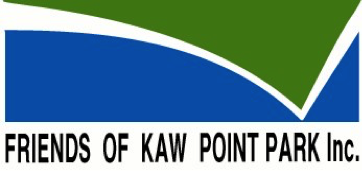The From Runoff to Rivers Project is a water quality issues and actions program that is offered to the community in four 15-minute educational videos. The videos, which are available to science teachers, youth organizations, and the general public, aim to result in positive impacts on public health and the reduction of stormwater pollution in Kansas City metro communities. These videos were funded by a KC Water Service Stormwater Education Grant awarded to Friends of Kaw Point Park.
How are you connected to the water you use every day?
“Dive into” fun, hands-on activities that will teach you about water quality in our watersheds and will inspire you to help improve water quality at home and in the community
This event is open to families and friends of all ages
and will be held rain or shine
Date: October 15, 2022
Place: Kaw Point Park
(1401 Fairfax Trafficway, KCK)
Time: 9 am – Noon*
9:00-9:30: Water quality introduction
9:30-10:30: Hands-on water testing and identifying water bugs
10:30-11:00: Improving water quality at home and in the community
*11:00-12:00: Optional Park tour and project participation
For more information, please contact Kate Delehunt: kateinkc@yahoo.com
This video explains the From Runoff to Rivers program, introduces the concept of watersheds, and encourages viewers to determine in which KCMO watershed they are located. It discusses how impervious surfaces, non-point source pollution, and other human activities contribute to water quality problems and how these problems become larger issues, as well as introducing the concept of BMPs and how they are used to mitigate water quality issues.
Field Experience Demonstrating Water Quality Tests on a KCMO Stream
Includes an introduction to the EarthEco Water Challenge water testing kits. Kits may be ordered for around $25, or request to check one out from Friends of Kaw Point Park by contacting friendsofkawpointpark6@gmail.com. The EarthEco Water Challenge kit includes supplies, instructions, and a data collection sheet for air and water temperature, turbidity, dissolved oxygen, phosphate, nitrogen, and pH tests. The video demonstrates how to conduct and record results of each water quality test provided in the kit. Watch the video again as needed before and during testing. The video also includes suggestions for choosing a testing site as well as a discussion of testing safety protocols. All parties that borrow a kit will be asked to fill out a feedback form and turn in the results of their tests when they return their kit.
Field Experience Demonstrating Seining for and Identifying Macroinvertebrates
Learn about macroinvertebrates and why they are used as an indicator of the health of a water body. This video includes a demonstration of how to use a small D-net in a KCMO water body and how to identify any macros that are caught in the process. It also highlights macros that might be found in the KCMO area, shows species from the three classifications of macros (sensitive to pollution, somewhat sensitive to pollution, and tolerant of pollution), and demonstrates how to calculate the overall water quality score based on the macros found in a tested stream. For those interested in participating in macroinvertebrate seining and identification, a small D-net can be included with borrowed EarthEco Water Challenge kits by request.
In this video, example data collected in videos 2 and 3 are explained and given a water quality score. If viewers have done their own water quality testing, they will be able to use this information to score their own tests. All participants should provide the results of their water quality tests to FOKPP. This video also focuses on water quality BMPs that viewers might choose to undertake, i.e., planting rain gardens, installing rain barrels, planting native plant species and trees, extending downspouts to grassy areas, disposing of hazardous waste properly, applying lawn chemicals properly, picking up pet waste, using a commercial car wash, and not littering.
Contact Laura Calwell, Education Director, at 913-963-3460 or via email if you have questions about this project.
Suggested testing sites:
For safety, please only test water when it has not rained in several days and the creek is flowing at low levels. Sites NOT appropriate for seining for macros are noted with **.
